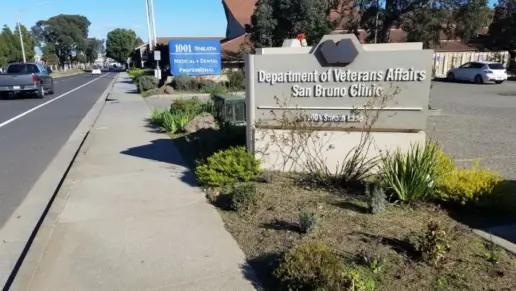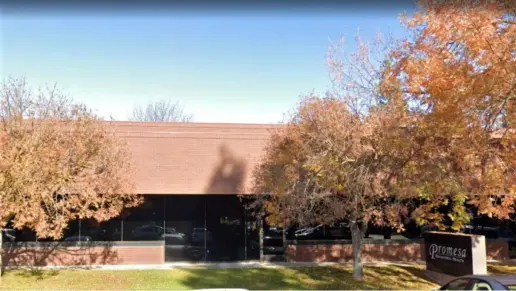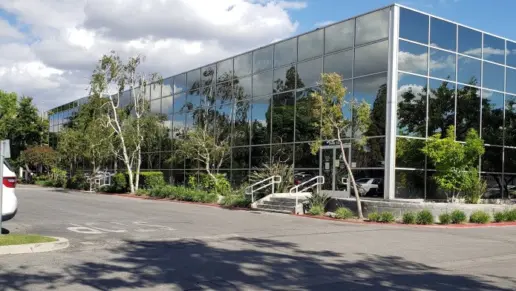About the Facility
Casa Treatment Center is a rehab in Pasadena, California that’s exclusively for women. They treat drug and alcohol addiction at different levels depending on where you are in your recovery and what you need. They’ll be able to recommend residential or outpatient rehab for you or a sober living home.
If you go into their residential program you’ll get treatment in a comfortable setting so it feels more like a friendly and welcoming home, not like a hospital. They only have 22 women at a time so can expect personalized care. You’ll get paired with a counselor who’ll work with you to create a treatment plan. Your program can last between 30 and 90 days.
If you’re in the outpatient program instead you’ll live at home and just come to their clinic for your treatment. Their treatment schedule is flexible. There are sessions open six days a week in the morning, afternoon, and evening so you can still work and keep up with other responsibilities while you get care. How many sessions you have every week will depend on your personal treatment plan.
You’ll have individual counseling and also group therapy and group classes. There are close to 20 different groups which cover many different aspects of addiction and treatment methods, like preventing relapse, family factors, trauma counseling, addiction education, and mental health issues that you might have along with addiction. There are also 12 step meetings and therapeutic activities like yoga, nutrition therapy, meditation, and arts and crafts.
They have sober living homes too. These homes are for women who have finished their treatment but still want a structured and sober environment before they’re ready to live independently. While you’re at Casa and afterward, there are also free family programs plus free aftercare and an alumni program.
Many former clients credit Casa with helping them get their life back and say they are treated with love and kindness. For women in recovery, Casa Treatment Center really has something for everyone.
 Accreditations
Accreditations

LegitScript Certified
LegitScript has reviewed Casa Treatment Center as part of their certification program, and has determined that it meets the LegitScript standards for legality, safety and transparency.
LegitScript verified in November 2019

NAATP
The National Association of Addiction Treatment Providers (NAATP) is a professional association that represents organizations in the field of addiction services. Founded in 1978, NAATP's mission is to advance addiction services and ensure that high-quality addiction treatment is available and accessible.
NAATP Member: Yes
Member ID: 116
 Treatment
Treatment
 Alcoholism
Alcoholism
Alcoholism, or alcohol use disorder (AUD), is defined by alcohol dependence. This is a state the body reaches when it experiences withdrawal symptoms in the absence of alcohol. A person who has AUD craves alcohol and continues to drink despite adverse consequences. Because withdrawing from alcohol can pose health risks, individuals with AUD should seek professional alcohol rehab in California to overcome their alcohol addiction. This process typically involves medical detox, rehabilitation, and maintenance.
 Drug Addiction
Drug Addiction
Drug rehab in California teaches participants constructive ways to stay clean and sober. Treatment revolves around helping individuals stop using the substance they are addicted to and learn healthy habits to avoid relapse.
 Dual Diagnosis
Dual Diagnosis
In California, dual-diagnosis addiction treatment programs offer comprehensive care for individuals with co-occurring mental health and substance use disorders. Programs include medically assisted detox, intensive outpatient, outpatient, residential rehab, and partial hospitalization. Using an evidence-based approach, clinicians utilize therapies like cognitive behavioral therapy, or dialectical behavioral therapy and mindfulness to address substance use disorders and co-occurring mental health challenges. Additional services include 12-Step recovery, group therapy, family counseling, and relapse prevention to promote sustained recovery.
 Mental Health and Substance Abuse
Mental Health and Substance Abuse
California drug and alcohol rehabs also provide dual-diagnosis treatment for individuals seeking help for both mental health and substance abuse. These programs are usually offered on an inpatient or outpatient basis. You can usually expect a mental health assessment and personalized treatment plan, evidence-based therapies, like cognitive-behavioral therapy (CBT), experiential therapies like equine therapy, skills groups, and counseling to simultaneously address both mental health and substance abuse and drastically increase your chances of long-term sobriety.
 Opioid Addiction
Opioid Addiction
Opioid rehabs specialize in supporting those recovering from opioid addiction. They treat those suffering from addiction to illegal opioids like heroin, as well as prescription drugs like oxycodone. These centers typically combine both physical as well as mental and emotional support to help stop addiction. Physical support often includes medical detox and subsequent medical support (including medication), and mental support includes in-depth therapy to address the underlying causes of addiction.
 Insurance and Financial
Insurance and Financial
Self-pay options
Private insurance
 Programs
Programs
 Adult program
Adult program
 Program for women
Program for women
 Total beds
Total beds
32
 Young adult program
Young adult program
 Levels of Care
Levels of Care
 Sober Living Homes
Sober Living Homes
Sober living homes in California offers an intermediate sober environment that has less structure than inpatient rehab but more than typical home environments. This makes it a good option for those who have concerns about transitioning back to the “real world” after treatment. Residents can typically live at the halfway house as long as they want, if they are willing to follow house rules. These may include a curfew, chores, and maintaining a job.
 Aftercare Support
Aftercare Support
Completing a drug or alcohol rehab program shouldn’t spell the end of substance abuse treatment. Aftercare involves making a sustainable plan for recovery, including ongoing support. This can include sober living arrangements like halfway houses, career counseling, and setting a patient up with community programs like Alcoholics Anonymous (AA) or Narcotics Anonymous (NA). Casa offers a structured Aftercare program for patients to participate in. This program offers an individualized session per month, one group per week as determined by the patient and his/her counselor, random UA testing, and the structured accountability of a meeting card requirement. This program is ideal for those looking to strengthen their ongoing recovery and is often accepted by diversion programs for ongoing aftercare requirements.
 Intensive Outpatient
Intensive Outpatient
Intensive outpatient programs (IOP) support clients’ sustained sobriety as they exit detox or step down from inpatient programs. They are also designed for clients who are at an elevated risk of relapse. Intensive outpatient treatment typically requires clients to engage in a minimum of nine hours of therapy per week, but clients may receive up to 20 therapeutic hours weekly. IOP treatment modalities often combine psychotherapy, recovery-focused life skills training, and medication assisted treatment (MAT).
 Outpatient
Outpatient
Clients receiving treatment at an outpatient rehab typically do not require hospitalization or intensive supervision and support. Outpatient addiction counseling and recovery education are often offered during the morning, evening, night, and weekend, allowing clients to tailor treatment to their own schedule. Partial hospitalization (PHP) and intensive outpatient (IOP) programs are the most time-intensive and are designed for clients who are at an increased relapse risk and/or who need more robust therapeutic support.
 Inpatient
Inpatient
Residential treatment programs are those that offer housing and meals in addition to substance abuse treatment. Rehab facilities that offer residential treatment allow patients to focus solely on recovery, in an environment totally separate from their lives. Some rehab centers specialize in short-term residential treatment (a few days to a week or two), while others solely provide treatment on a long-term basis (several weeks to months). Some offer both, and tailor treatment to the patient's individual requirements. The Residential Treatment program at Casa houses up to 32 women at any one time who stay with us from 30 up to 90 days. During this period of recovery, women work closely with an individual counselor to better understand their personal needs, goals and progress. Residential Treatment participants are given guidance on basic life skills, such as nutrition, cooking, physical exercise, holistic health practices and decision-making. They learn to participate in their own recovery by attending mandatory onsite groups and social activities. When possible, participants work with sponsors outside of treatment who can also take them to outside meetings where they learn to connect with other addicts in recovery outside their facility. Each counselor strives to identify high-risk, co-occurring disorders, such as anorexia, bulimia and depression as well as physical, mental and sexual child abuse, all of which have the potential to cause regression or relapse if left unaddressed during residential treatment. When these potentially high-risk issues are identified each woman is linked with an individual therapist.
 12-Step
12-Step
Participants engaged in 12 step programs receive intensive peer coaching (sponsorship) and community support. Spiritual development as a means of achieving psychological and emotional healing and growth is the cornerstone of 12 step recovery, but religious affiliations are not required. Meetings are free, anonymous, and open to the public, though specialized formats are available, including groups for seniors, teens, and family members. Evening, night, and day meetings are conducted year-round in most communities.
 Medically Assisted Detox
Medically Assisted Detox
When addicted, quitting your drug of choice suddenly can be dangerous. That’s why experts agree a medically assisted detox is the safest way to remove addictive substances from the body. Usually done in an inpatient setting, your vitals signs and overall well being are consistently monitored and rechecked in order to keep you safe and ensure the detox is successful.
 24 Hour Clinical Care
24 Hour Clinical Care
At certain points in the recovery process, it's important to have support available 24/7. 24-hour clinical care offers a safe environment in which to recover from drug or alcohol addiction in peace, knowing medical detox and other treatment will happen with professionals on hand.
 Clinical Services
Clinical Services
Creative Arts Therapy
Creativity is inherently healing, and can help those in recovery express thoughts or feelings they might not otherwise be able to. Creative arts therapy can include music, poetry/writing, painting, sculpting, dance, theater, sandplay, and more. Unlike traditional art, the final product matters far less than the experience of creation and expression itself.
Eating Disorder Treatment
Eating disorders include anorexia, bulimia, binge eating, and dysfunctional eating patterns. Many psychologists and other mental health professionals consider eating disorders to be food addictions, meaning food is being used in an addictive way (similar to drug or alcohol addiction). Certain substance abuse treatment programs will have treatment for eating disorders as one of the services offered. An eating disorder may also present as a co-occuring disorder or dual diagnosis alongside drug and alcohol addiction.
Family Therapy
Research clearly demonstrates that recovery is far more successful and sustainable when loved ones like family members participate in rehab and substance abuse treatment. Genetic factors may be at play when it comes to drug and alcohol addiction, as well as mental health issues. Family dynamics often play a critical role in addiction triggers, and if properly educated, family members can be a strong source of support when it comes to rehabilitation. Family members play an integral role in participants’ success and also receive the benefits of healing as women complete the treatment and recovery process. Families are educated about the disease of addiction and encouraged to share their own feelings and struggles while taking part in discussion groups, activities, educational lectures, speakers meetings and group sharing sessions. These programs are mandatory for all family member visitors of Residential Treatment participants. Family dynamics, communication, trust, addiction as a family disease, Al-anon principals and 12-step principles for recovery are key components of our Family Counseling and Education programs.
Group Therapy
Group therapy is any therapeutic work that happens in a group (not one-on-one). There are a number of different group therapy modalities, including support groups, experiential therapy, psycho-education, and more. Group therapy involves treatment as well as processing interaction between group members.
Individual Therapy
In individual therapy, a patient meets one-on-one with a trained psychologist or counselor. Therapy is a pivotal part of effective substance abuse treatment, as it often covers root causes of addiction, including challenges faced by the patient in their social, family, and work/school life.
Life Skills
Life skills trainings involve all the skills a person must have in order to function successfully in the world. These include time management, career guidance, money management, and effective communication. Truly successful addiction recovery is based on the ability to not only live substance-free, but to thrive. Life skills teaches the practical necessities of functioning in society, which sets clients up for success in life, and therefore sobriety.
Nutrition Therapy
Nutrition therapy, aka medical nutrition therapy (MNT), is a way of treating physical, emotional, and medical conditions through diet. Specific dietary plans are designed by professional nutritionists or registered dietitians, and patients follow them in order to positively affect their physical and mental health.
 Settings and Amenities
Settings and Amenities
-
Residential setting
-
Recreation room
-
Meditation room
-
Art activities
 Contact
Contact
160 N. El Molino Avenue
Pasadena CA, 91101


